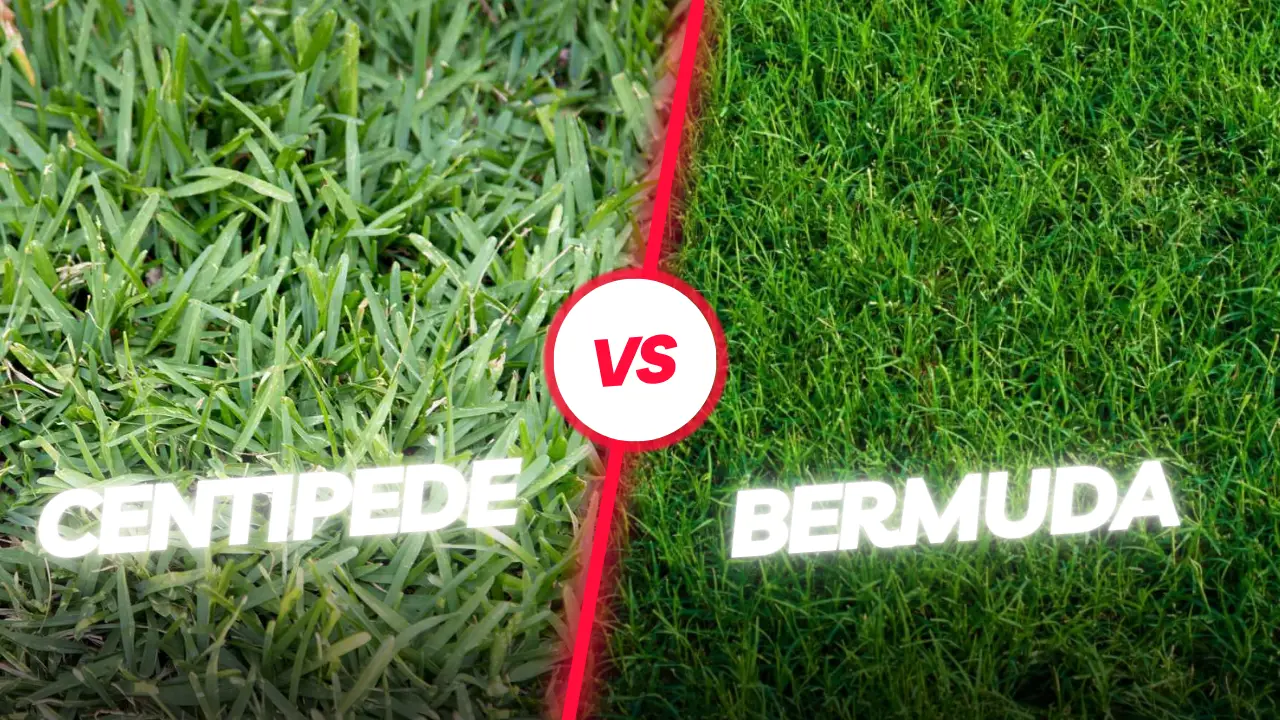The quest to attain a perfect lawn is often a challenging one. This journey involves many critical decisions, and one of them is choosing the right type of grass. Today, we dive into an in-depth comparison between two popular options: Centipede Grass and Bermuda Grass. But which one is right for you? Let’s find out!
Overview of Centipede Grass
Characteristics of Centipede Grass
Known for its heat tolerance and minimal upkeep, Centipede Grass is a popular choice for homeowners in warmer climates. It’s characterized by its light green color and coarse texture. This grass type grows low to the ground, which means less mowing for you.
Benefits of Centipede Grass
Centipede Grass thrives in sandy, acidic soils. It requires minimal fertilization, making it an economical option. Moreover, its low growth habit means less frequent mowing, which saves both time and energy.
Limitations of Centipede Grass
Despite its benefits, Centipede Grass is not without its drawbacks. It has a low tolerance for traffic, making it less suitable for lawns that see heavy use. Furthermore, its light green color might not be appealing for everyone, and it can struggle in shady areas.
Overview of Bermuda Grass
Characteristics of Bermuda Grass
Bermuda Grass is a robust, resilient type of grass, known for its deep green color and fine texture. It grows aggressively and spreads quickly, making it excellent for areas with high traffic.
Benefits of Bermuda Grass
One of the key advantages of Bermuda Grass is its high tolerance to heat, drought, and traffic. It’s also versatile and can adapt to a variety of soil types. Its rapid growth rate makes it great for quick lawn establishment.
Limitations of Bermuda Grass
However, Bermuda Grass does come with its own set of challenges. It requires frequent mowing due to its aggressive growth. Additionally, it may invade nearby flower beds or gardens if not properly contained.
Comparative Analysis: Centipede Grass vs. Bermuda Grass
When comparing these two grass types, it’s essential to consider several factors.
Climate Adaptability
Both grasses excel in warm climates. However, Bermuda Grass has better drought tolerance, while Centipede Grass prefers slightly cooler, more humid environments.
Maintenance Requirements
Centipede Grass generally requires less maintenance due to its slow growth rate and low nutrient requirements. On the other hand, Bermuda Grass, due to its aggressive growth, needs more frequent mowing and fertilization.
Appearance and Texture
If you prioritize a deep green, lush lawn, Bermuda Grass might be the better option. However, if you prefer a low-maintenance, yet still pleasant-looking lawn, Centipede Grass could be the choice for you.
Choosing the Right Grass for Your Lawn
Considerations
Choosing the right grass type comes down to your personal preferences and lawn conditions.
Soil Type
Bermuda Grass is adaptable to various soils, while Centipede Grass prefers acidic, sandy soils.
Climate
Consider your local climate. Both grasses favor warm climates, but Bermuda is more drought-tolerant.
Maintenance Capability
If you can spare time for regular mowing and fertilization, Bermuda might work for you. If you prefer less upkeep, then Centipede could be your choice.
Conclusion
The choice between Centipede and Bermuda Grass depends largely on your climate, soil type, and maintenance capabilities. Each grass type has its own strengths and weaknesses, so it’s essential to consider what works best for you and your lawn. Whether you choose Centipede or Bermuda, both can result in a beautiful, thriving lawn when appropriately cared for.
FAQs
What grass is more suitable for high-traffic areas?
Bermuda Grass is more suitable due to its high traffic tolerance and quick recovery rate.
Can I grow Centipede Grass in shady areas?
Centipede Grass may struggle in highly shady areas. It prefers full sunlight or slight shade.
How often should I mow Bermuda Grass?
Given its rapid growth, Bermuda Grass may need to be mowed once a week during the growing season.
What type of soil is best for Centipede Grass?
Centipede Grass prefers sandy, acidic soils.
Can I mix Centipede Grass and Bermuda Grass?
While it’s possible, it’s generally not recommended as each grass has different growth habits and care requirements, which might result in an uneven lawn.








